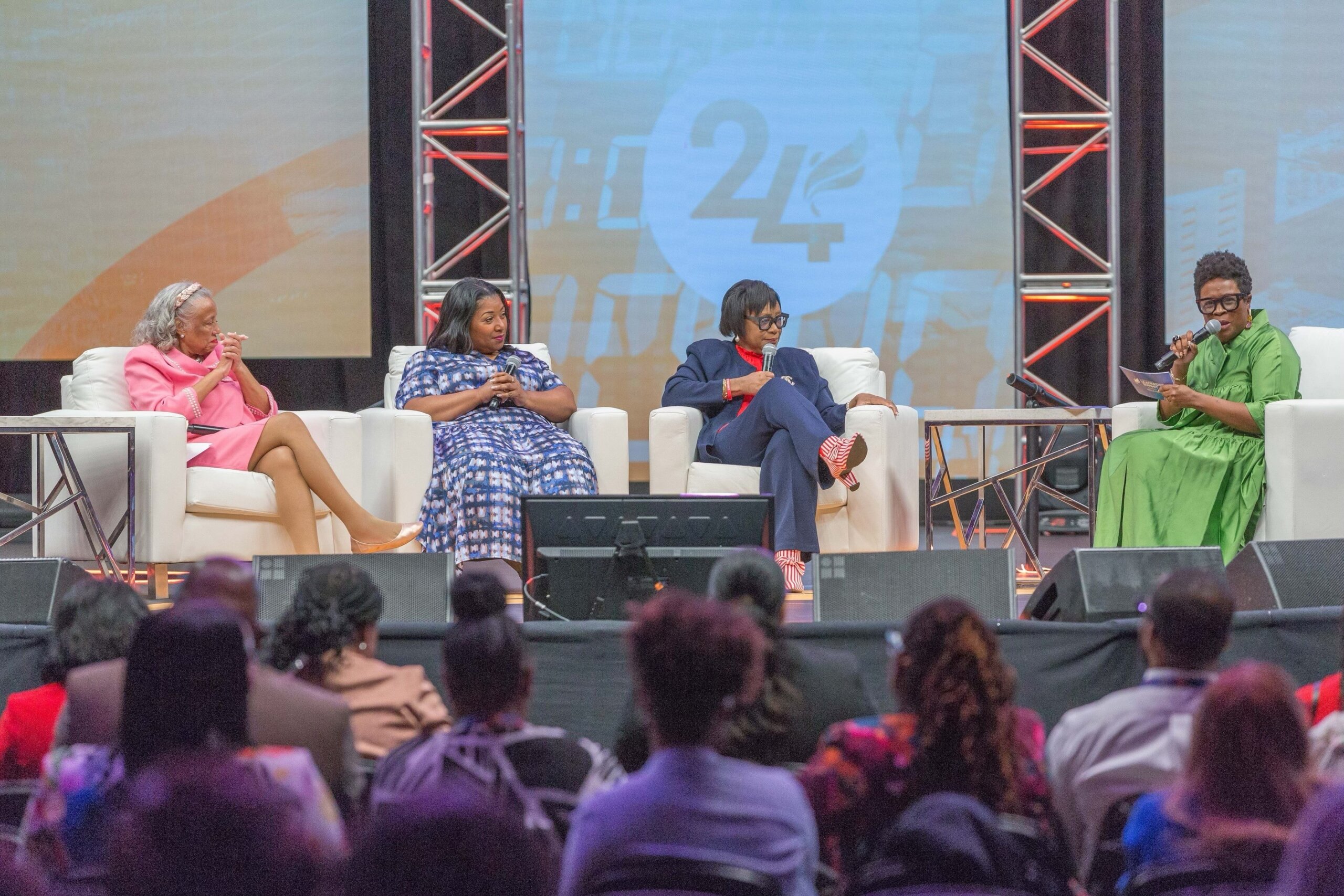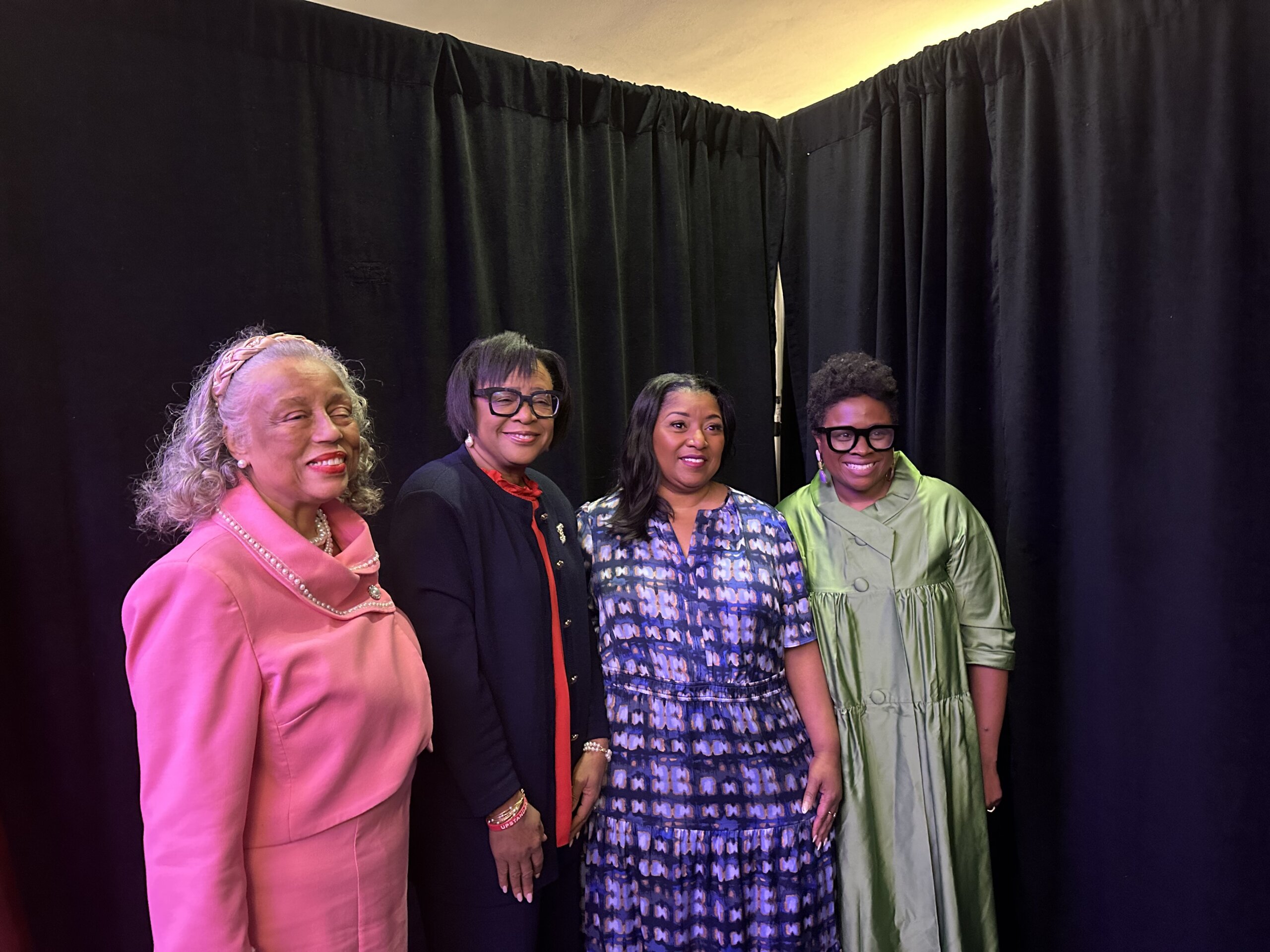Takeaways from the 2024 International Leadership Summit
By Latosha Herron Bruff, Senior Vice President, Diversity, Inclusion & Community Engagement
I had the pleasure of moderating a panel for the 2024 International Leadership Summit in March. The panel, “The Right Time for Belonging: Embracing a Fresh Perspective on DEIA,” focused on the role of diversity, equity, inclusion, and accessibility (DEIA) in the workplace. Read my takeaways from the panel below.

1. Fostering a more inclusive environment is critical for businesses and corporations.
The panel featured three inclusive and successful leaders. Each emphasized the importance of leaders creating an inclusive environment through DEIA to form a true sense of belonging. Margo J. Posey, President and CEO of the DFW Minority Supplier Development Council, said that everyone’s voices need to be heard to create that belonging.
“The tone starts at the top, and if I’m the CEO of an organization, which I am, I have to make it clear that this matters,” said Cynt Marshall, CEO of the Dallas Mavericks and 2024 DRC Board Chair. “If you get the culture right, if you get diversity right, if you lead with inclusion, if you have a diverse workforce—all of that, your results will follow.”
Creating this environment requires oversight.
“We know in corporate America, if you can’t measure it, it’s not moving,” said Windy Oliver, Executive Vice President at Wells Fargo. “So, make sure there are accountability metrics around.”
2. To create a sense of belonging, include mentorship.
“People do business with people they know, like, trust, and have a relationship with,” said Posey, which is why it is important to emphasize connection through mentorship. Those connections turn into economic opportunities.
For minorities trying to break into the business world, mentorship is also helpful for development.
“There are different levels of mentoring. What a first-level entrepreneur needs is not what [everyone] needs,” said Posey. “All mentoring is good, but some are better than others. And you have to know what it is that you need.”
3. Go beyond what is just required with supplier diversity.
Supplier diversity, or using minority- or women-owned businesses as suppliers, is not just the right thing to do, but also economically advantageous, said Posey.
“By continuing to utilize minority businesses, it would add over $9 trillion to the gross national product within the next 8 years. It would add another eight million jobs for all people,” Posey said.
Supplier diversity will lift every business that participates.
“We need to make sure that our large businesses are truly doing business with our diverse businesses,” said Marshall. “If you want your business to thrive, and if you want to be successful, and if you want to be a part of the solution, and if you want to make things better, then you’ll do it.”
4. Now is not the time to slow down on DEIA work.
Diversity, equity, and inclusion (DEI) are under scrutiny. But leaders in DEI will tell you that this is the time to step on the gas, not slow down.

“Minorities now have additional threats to their opportunities to do business in the federal government’s space,” said Posey. “There are major attacks on supply chain inclusion, and supply chain inclusion is all about economics, so it’s critically important that leaders from the private sector speak up and have their voices heard.”
Slowing down DEI work will significantly impact our economy.
5. Start with Dallas.
In Marshall’s first address as DRC Chair, in front of around 1,300 business leaders, she let it be known that the DRC is pushing on the gas when it comes to diversity, inclusion, and belonging. She set the DRC’s mantra for the year: to seize the moment.
“Seize the moment to really get rid of the tale of two cities in Dallas, where you can go to one zip code and the life expectancy is 58 years, and just 10 or 15 minutes away, the life expectancy is 85 years old. And that’s because of systemic issues that we must identify and address,” said Marshall. “As a region, as business leaders, we’re going to seize the moment to close the gap and to get rid of these disparities and make Dallas the place that everybody is talking about.”
Dallas is taking it upon itself to address those challenges head-on.
6. There is a lot of hope for the future of DEIA.
Despite the challenges we face, the panelists were optimistic that the future of DEIA is bright.
“One of my favorite Martin Luther King, Jr. quotes is, ‘the time is always right to do what is right.’ We do it because it’s right,” said Oliver. “Sometimes corporations have to lead the way… we’re doubling down.”
We have an opportunity to do great things and the right leaders who will help us get there.
“The future for us is about our children. It’s about making sure that we close the gaps in these communities. It’s about making sure everyone has access,” said Marshall. “Our workplace promise at the Mavs, and we carry it out to the community as well, is every voice matters and everybody belongs.”
To learn more about the diversity and inclusion work the Dallas Regional Chamber is doing, visit our website.